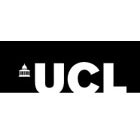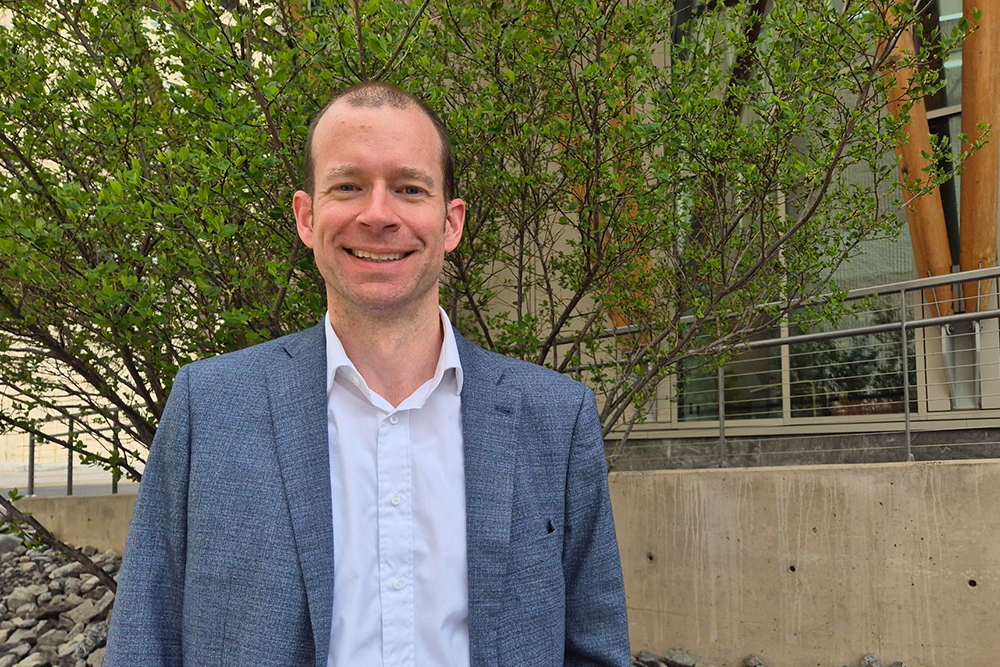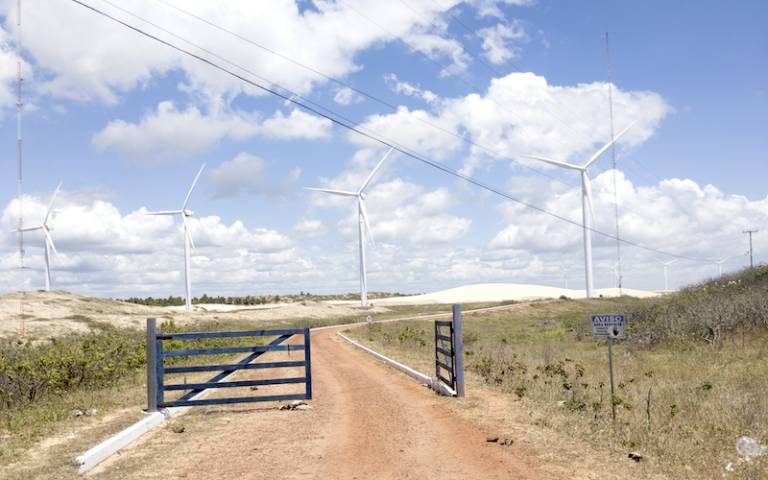

Sustainable Resources MPhil/PhD
Want to know what it's like to study this course at uni? We've got all the key info, from entry requirements to the modules on offer. If that all sounds good, why not check out reviews from real students or even book onto an upcoming open days ?
Different course options
PhD/DPhil - Doctor of Philosophy
UCL (University College London)
Select a course option
Select a subject
Select a an exam type
Select student location
Course info
Entry requirements, tuition fees, latest reviews.
Faced with a growing global population and increased demand and competition for natural resources our mission is to generate knowledge in their globally sustainable use. Our research portfolio includes major EU and EPSRC funded projects, as well as consultancy with industry and policy practitioners at the highest level. The Doctor of Philosophy (PhD) consists of a piece of supervised research, normally undertaken over a period of three years full-time. Assessment is by means of a thesis, which should demonstrate your capacity to pursue original research based upon a good understanding of the research techniques and concepts appropriate to the discipline.
Many of our graduates have gone on to careers in teaching and research as well as in consultancy, industry, government and policy concerned with the economy-resource-environment interface.
The UCL Institute for Sustainable Resources (ISR) aims to train highly employable graduates who are equipped with the required analytical capability, research skills, knowledge, management skills, and professional values to become leaders and entrepreneurs in their chosen field. Leadership, communication, teamwork, language and business skills are refined in the high-quality multidisciplinary research environment through our taught programmes, workshops, internal and external seminars.
What students say
Helpful instructions from my.. Read more
A minimum of an upper second-class UK Bachelor's degree and a Master's degree, or an overseas qualification of an equivalent standard, in a relevant subject, is essential. Exceptionally: where applicants have other suitable research or professional experience, they may be admitted without a Master's degree; or where applicants have a lower second-class UK Honours Bachelor's degree (2:2) (or equivalent) they must possess a relevant Master's degree to be admitted. We expect any successful application to include a sufficiently strong and convincing proposal, and those holding a Master's degree are typically well prepared to provide one. Relevant work experience is highly desirable.
Students living in
£6,035 per year
Students from Domestic
This is the fee you pay if the University is in the same country that you live in (England, Scotland, Wales, Northern Ireland)
£28,100 per year
Students from EU
The amount you'll pay if you come to study here from somewhere in the EU.
Students from International
The amount you'll pay if you come to study here from a country outside the EU.
Latest Sustainability reviews
Review breakdown, how all students rated:, ucl (university college london) , london.
UCL (University College London) is consistently ranked among the top ten universities in the world, conducting leading research across...
Student rating
Cug ranking.
Gower Street London Camden WC1E 6BT

Thinking of studying in London?
Check out our
Similar courses at this uni
Find a course.
- Undergraduate
- Foundation degree
- Access & foundation
- Postgraduate
YOUR UCAS POINTS 0
Please wait
Recent Headlines
- ESF’s Ranger School Celebrates its Graduates May 18
ESF’s Dr. Tristan Brown Honored with Exemplary Researcher Award
- Chuck Kroll Named SUNY Distinguished Teaching Professor
- ESF Celebrates Class of 2024 on the Shores of Onondaga Lake
Submit a News Story

Syracuse, N.Y. – May 14, 2024 – Associate Professor Tristan Brown in the Department of Sustainable Resources Management, was named Exemplary Researcher for 2024-25 at the SUNY College of Environmental Science and Forestry (ESF). The College’s Exemplary Researcher Award recognizes successful, currently active researchers with exemplary research activity, publication record, and a graduate/undergraduate student mentorship program.
“Dr. Brown represents the epitome of dedication and excellence in environmental research, advancing our knowledge and commitment to bioeconomy pathways and technologies,” said President Joanie Mahoney. “We congratulate Tristan on this well-deserved honor.”
The Exemplary Researcher selection process recognizes the exceptional work of ESF’s academic community members, who are nominated by their peers. These nominations are reviewed by the Committee on Research and Scholarship, considering three key factors: the impact of their publications and citations, their success in securing external funding, and their dedication to mentoring students, particularly at the graduate level.
Brown joined ESF's Department of Sustainable Resources Management in 2014. In addition to teaching, he is the director of the Bioeconomy Development Institute. His research analyzes the carbon abatement costs of decarbonization pathways under different policy and legal scenarios.
He works in transdisciplinary research groups that utilize life cycle assessment, techno-economic analysis, and systems analysis of bioeconomy pathways and technologies to determine their barriers and opportunities as part of the transition to a net-zero economy.
During his tenure at ESF, he has authored or co-authored 25 refereed articles and three book chapters on techno-economic analysis, uncertainty analysis, and policy analysis of renewable energy pathways with collaborators from the fields of agronomy, economics, engineering, law, and management.
Brown has served as the principal investigator on $2.3 million of externally funded grants, and the co-principal investigator on $14.9 million of externally funded grants. He has also advised government officials in policymaking and law enforcement at the international, federal, and state levels on U.S. energy policy, and developed state policies in support of statutory decarbonization targets.
Brown shares his expertise with his colleagues and peers and has had appointments on several boards and advisory groups including Energy Vision’s Board of Directors, NYSERDA’s Anaerobic Digestion Project Steering Group, NYS Climate Action Council’s Agriculture and Forestry Advisory Panel, Bioeconomy Subgroup, and NYS Climate Action Council’s Energy-Intensive and Trade-Exposed Industries Advisory Panel.
About SUNY ESF
The SUNY College of Environmental Science and Forestry (ESF) is dedicated to the study of the environment, developing renewable technologies, and building a sustainable and resilient future through design, policy, and management of the environment and natural resources. Members of the College community share a passion for protecting the health of the planet and a deep commitment to the rigorous application of science to improve the way humans interact with the world. The College offers academic programs ranging from the associate of applied science to the Doctor of Philosophy. ESF students live, study and do research on the main campus in Syracuse, N.Y., and on 25,000 acres of field stations in a variety of ecosystems across the state.

UCL Institute for Sustainable Resources
- Partnerships
- Publications

New research shows the damage caused by the ‘Green grabbing’ of Brazilian public and common lands
13 May 2024
New research from UCL and Boku University shows that a lack of transparency is allowing for the privatisation of land for renewable energy infrastructure in Brazil by large international corporations

The study, published in Nature Sustainability, found that land privatisation is the dominant means for solar and wind companies to secure land for their power generation infrastructure, which includes the transfer of control of formerly public and common lands to often international companies.
In the years between 2011and 2021, wind power in Brazil grew from 1.2% of its power generation capacity to 11.4%, and solar power grew from 0.1% to 2.6%, with plans for significant growth in place over the next several decades. While the transition from fossil fuels to renewable energy reduces carbon emissions, wind parks and solar photovoltaic parks require a significant land footprint.
The researchers combined databases of geographic data with ownership and investment information, and digital land registries from 2000 through 2021. They found that wind parks take up a total of about 2,148 square kilometres and solar parks take up about 102 square kilometres in Brazil. However, they found that international investors, primarily from Europe, claimed a 78% stake in wind parks and 96% share of solar assets. While on paper Brazilian entities own 89% of wind parks, the majority (68%) are subsidiaries of internationally controlled companies, particularly from Italy and France.
Most of the land that these companies build their energy infrastructure on is private property. However, there is a growing concern that the privatisation process is stimulated by the expansion of renewable energies and acquired by dispossessing local residents. A significant portion of wind parks have been built on legally dubious ground, including 28% that only rely on environmental registries without legal property titles, and 7% that are built on public common land.
Co-author Dr Nadia Ameli (UCL Bartlett School of Environment, Energy and Resources) noted:
“ Our work highlights the importance of striking a balance between sustainable energy development and the protection of public land and commons. Privatisation with poor oversight and little transparency is being used to appropriate and transfer land from traditional communities to large international corporations, despite great land tenure insecurity.
This kind of appropriation is common in Brazil because of historical inequities in land ownership, regulatory gaps and weak governance. The phenomenon of ‘land grabbing’ is well documented across Brazil, commonly for agricultural purposes like creating large cattle ranches and soybean farms. It has led to environmental degradation and numerous conflicts over land ownership between Brazil’s government, farmers and ranchers, and the country’s traditional and indigenous population. The researchers are concerned that the trend will continue as ‘green grabbing,’ which uses the need for clean and renewable energy as a justification for the further appropriation of public and common lands.
Lead author, Dr Michael Klingler of Boku University, added:
“ The land issue is central to driving effective climate action and promoting 'just' low-carbon energy pathways. The necessity for the energy transition must not be questioned, but rather the way in which these projects are implemented. The collaboration with affected rural communities, NGOs and scientists in the Brazilian state of Bahia showed that traditional and marginalized population groups are confronted with 'new' land conflicts due to the expansion of renewable energies. However, these are increasingly being legitimized by the climate change mitigation imperative.
The research was supported by the European Research Council.
- Read the research paper in Nature Sustainability
- Dr Nadia Ameli's academic profile
- Dr Michael Klinger's academic profile
- UCL Bartlett School of Environment, Energy & Resources
- UCL Faculty of the Built Environment
- Boku University
- Image credit: Michael Klingler
- Image description: Wind turbines visible on sandy land fenced off with barbed wire in the state of Ceará, Brazil.
Related News

IMAGES
VIDEO
COMMENTS
PhD students at the UCL Institute for Sustainable Resources work on a range of research projects relating to the sustainable use of the world's resources - including energy, food, minerals and ecosystems. Using a variety of quantitative and qualitative methods, our research analyses natural and human systems, on global, regional, and local ...
Below is a list of eligible supervisors at UCL Institute for Sustainable Resources. You can find a link to their research profile, whether they are currently accepting new PhD students and an overview of their research interests.
In the face of global environmental challenges, societies, businesses and policymakers alike need to rethink how we can use our natural resources sustainably. UCL's Sustainable Resources: Economics, Policy and Transitions MSc investigates the circular economy, resource efficiency and sustainable resource management. You will be equipped with the skills and knowledge to drive
The UCL Institute for Sustainable Resources (ISR) aims to train highly employable graduates who are equipped with the required analytical capability, research skills, knowledge, management skills, and professional values to become leaders and entrepreneurs in their chosen field. Leadership, communication, teamwork, language and business skills ...
The cross-disciplinary UCL Institute for Sustainable Resources (ISR) conducts research, teaching and enterprise work in the area of sustainable use of natural resources, bringing together capabilities from across UCL. Our multidisciplinary programme and strong links to industry, policy and other academic institutions provide an excellent foundation for PhD study.
Sustainable Resources MPhil/PhD UCL (University College London) Student rating. This is the overall rating calculated by averaging all live reviews for this uni on Whatuni. ( 4.0) View reviews Compare. Add to comparison Get prospectus Visit website Request info ...
MPhil/PhD. The cross-disciplinary UCL Institute for Sustainable Resources conducts research, teaching and enterprise work on the sustainable use of natural resources, with a focus on the Sustainable Development Goals. Our strong links to industry, policymakers and other academic institutions provide an excellent foundation for PhD study.
This Sustainable Resources - Economics, Policy and Transitions programme offered at the UCL will give you the tools to work towards more sustainable, efficient, equitable and circular resource use. UCL. London , England , United Kingdom. Top 0.1% worldwide. Studyportals University Meta Ranking.
UCL Institute for Sustainable Resources generates knowledge in the globally sustainable use of natural resources. Our Master's and PhD programmes equip graduates with the tools to become a leader in energy and sustainability related industry, academia and policy making. ... University College London, Gower Street, London, WC1E 6BT Tel: +44 (0 ...
UCL Institute for Sustainable Resources We generate knowledge in the globally sustainable use of natural resources and train the future leaders in the field. Study with us. To meet net-zero targets wholesale change is needed in the way we consume and use resources. For global change to happen, policy-makers, business and communities need to be ...
It also facilitated me to become a PhD student so I can continue my research journey in addressing the challenges of promoting a sustainable urban environment and increasing the efficiencies in energy and resource use." Wanlin Chen, Sustainable Resources: Economics Policy and Transitions MSc MSc alumnus (2021), PhD student at Hong Kong ...
Syracuse, N.Y. - May 14, 2024 - Associate Professor Tristan Brown in the Department of Sustainable Resources Management, was named Exemplary Researcher for 2024-25 at the SUNY College of Environmental Science andForestry (ESF). The College's Exemplary Researcher Award recognizes successful, currently active researchers with exemplary research activity, publication record, and a graduate ...
Christopher Bishop. PhD Student. View Christopher's profile. Send Christopher an email. Arianna Buratto. Thesis: Behavioural Economics, Sustainable Food Production and Consumption. View Arianna's profile. Send Arianna an email. Carolina Campos-Santos.
To receive an email when opportunities become available in Sustainable Resources, along with invitations to open days and more, register your interest in starting an MPhil/PhD with us. These include opportunities funded studentship opportunities through the EPSRC Doctoral Training Partnership and the ESRC-funded UCL, Bloomsbury and East London ...
We have laboratory facilities for experimental research, as well as access to cluster computing through UCL for computationally-intensive projects. UCL Institute for Sustainable Heritage is based in Central House on UCL's Bloomsbury campus in Central London. Desks are available for all PhD students and academic staff using a hot-desking system.
"The Institute for Sustainable Resources's PhD programme has been a key pillar of our work since the institute was established in 2011. The BHP Billiton Foundation provided a donation to support 20 PhD students to research topics related to sustainable resource use.
At UCL ISR, we're quickly building a multi-disciplinary community of staff and students that fosters an innovative approach to sustainability issues. Our researcher's produce world-class research projects across an array of sustainable resources topics, whilst also supervising our MPhil/PhD candidates on their own independent projects.
UCL Energy Institute delivers world-leading learning, research and policy support on the challenges of climate change and energy security. Our multidisciplinary research programme and strong industry links provide an excellent foundation for your Energy PhD study. Our graduates are employed by the world's foremost academic, industry and governmental institutions.
Applicants should meet the UCL Institute of Sustainable Resources PhD Programme Entry Requirements. Applicants should have an excellent masters level degree in economics, political science, building science or a related field, and a strong interest in climate policy. All applicants must also meet the minimum language requirements of UCL.
The UCL Energy Institute came first, founded in 2009 out of the Bartlett School of Graduate Studies. A substantial donation from BHP Billiton (BHPB) in 2011 then provided the opportunity (and challenge) of creating a sister institute that had a wider focus on natural resources and the environment. ... The UCL Institute for Sustainable Resources ...
UCL Energy Institute UCL Institute for Sustainable Resources UCL Science Technology and Public Policy The aim of this PhD Research Studentship pathway is to contribute to building a better social science informed evidence base for energy and environment policies, through training applied social scientists in the field. The focus is the critical ...
Sustainable Resources MPhil/PhD Faculty of the Built Environment | Bartlett School of Environment, Energy and Resources The interdisciplinary UCL Institute for Sustainable Resources provides evidence, expertise and training to respond to climate change, and to support sustainable transitions for people and planet. Our strong links with industry, policymakers and...
Current research on Sustainable Finance is supported by the LINKS project. This project will last for the next five years and will focus on the role of climate finance to meet the Paris climate goals (2019-2024). This research will promote essential guidance for a re-orientation of financial flows towards low-carbon and energy efficiency ...
Dr. Tel: 020 7679 5574. Email: [email protected]. Programme Director. Dr. This one-year full-time MSc in Chemical Sustainability is unique and specifically developed in response to the need of pharmaceutical and chemical industries for highly qualified students and scientists with interdisciplinary knowledge of the core concepts and aspects ...
Co-author Dr Nadia Ameli (UCL Bartlett School of Environment, Energy and Resources) noted: " Our work highlights the importance of striking a balance between sustainable energy development and the protection of public land and commons. Privatisation with poor oversight and little transparency is being used to appropriate and transfer land ...